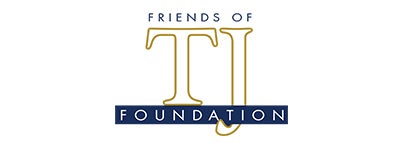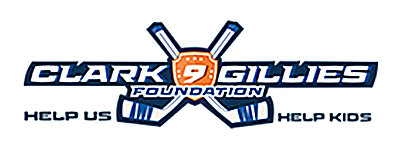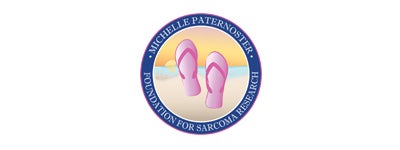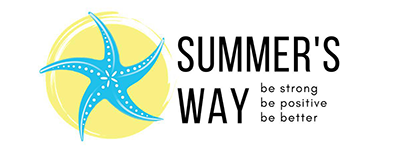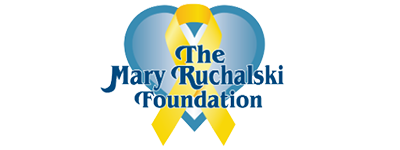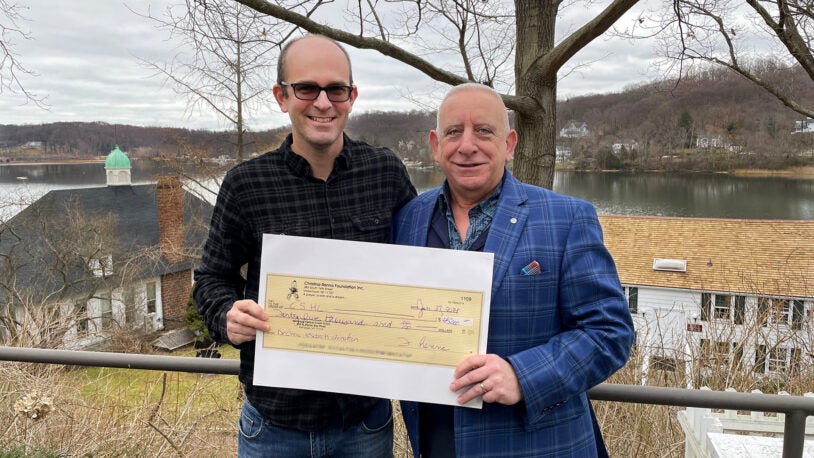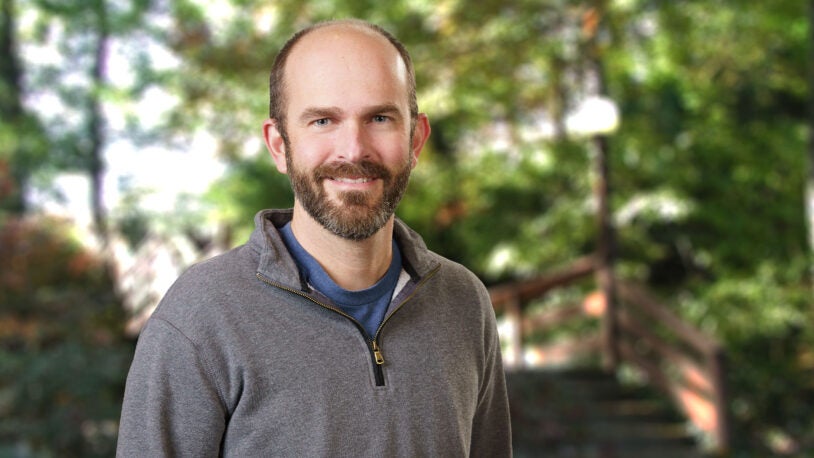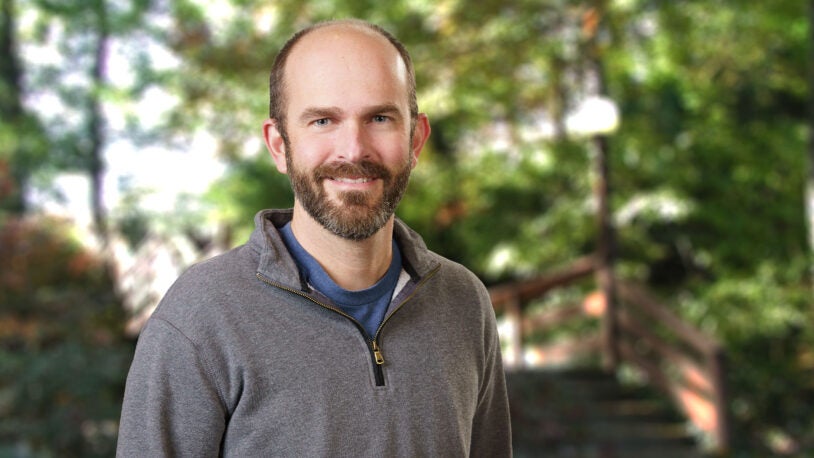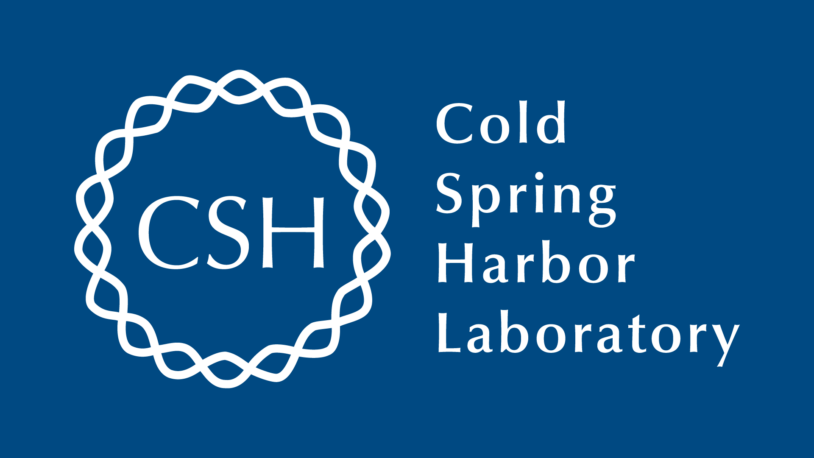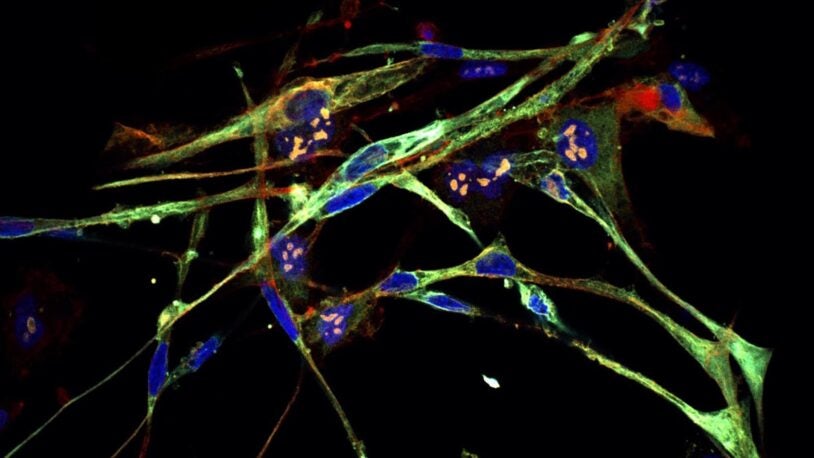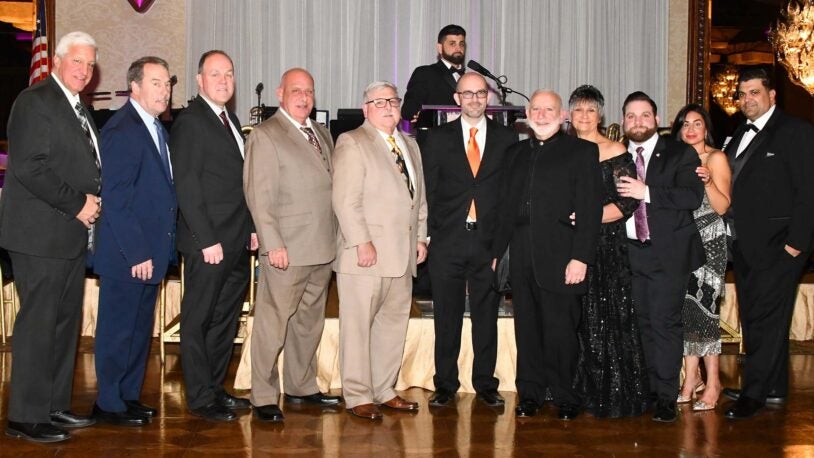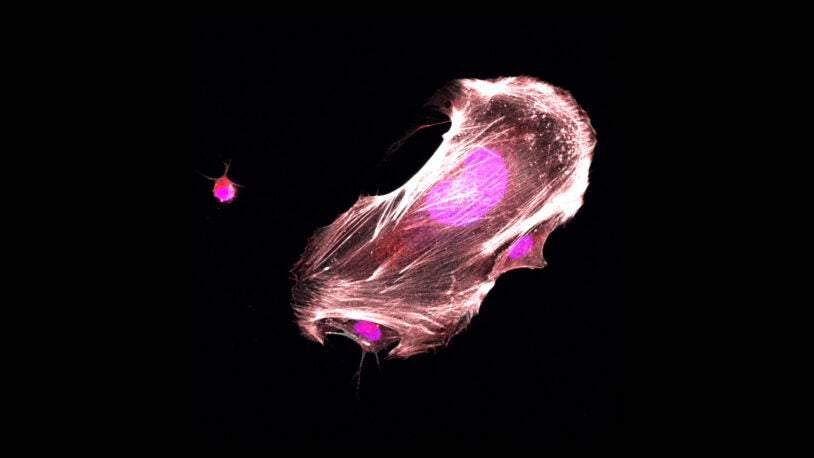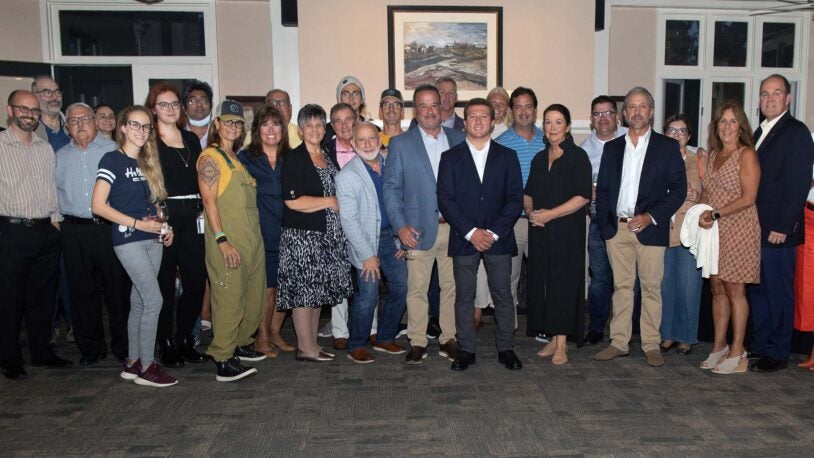Rhabdomyosarcoma (RMS)

Rhabdomyosarcoma (RMS) is a skeletal muscle cancer that can be found anywhere in the body, from the head to the limbs. It is a rare, though often fatal, disease that primarily affects children.
RMS is one of many types of sarcoma, cancers derived from connective tissues like muscle and fat. There are two different types of RMS, known as embryonal and alveolar. Embryonal RMS is found mainly in children under age five and has a five-year survival rate of about 40%. Alveolar RMS has a five-year survival rate of less than 20% and affects children of all ages.
RMS has challenged scientists and clinicians as they work to understand what causes the disease and how best to treat it. The disease is rare and the genomic landscape of RMS tumors is varied. Because of this, RMS is understudied. But recent research suggests that the disease holds great promise for a cure.
RMS research at CSHL is part of a larger effort called the Sarcoma Research Project. This highly targeted effort aims to understand what causes sarcomas and to identify new therapeutics to treat them. The initial phase of the project is focused on RMS.
Cold Spring Harbor Laboratory (CSHL), a world leader in cancer biology and genetics, is applying its unique interdisciplinary approach and cutting-edge technology to RMS in an effort to develop effective therapeutics for the disease.
To search for a cure, CSHL Assistant Professor Chris Vakoc is collaborating with Oregon Health and Science University Professor Charles Keller. Keller is one of the world leaders in RMS research and has created dozens of mouse models for the disease that will be instrumental in future research. Vakoc is using cells from these mouse lines in an test he has developed to pinpoint genetic weaknesses within a population of cancer cells. Vakoc’s cutting-edge approach has already been successful in developing a drug for acute myeloid leukemia, with a treatment now in clinical trials.
The Vakoc-Keller collaboration was spurred by a 2014 Banbury Center symposium on RMS. The first-ever meeting of its kind, the symposium brought together researchers from around the world to chart a path forward to better diagnosis and treatment of RMS. The research presented during the meeting suggests that development of a drug for RMS is indeed a realistic objective.
Read the report: Rhabdomyosarcoma: A critical review of research and implications for developing therapies (pdf).
The Sarcoma Research Project has been made possible by the generous support of grassroots foundations. Your contributions provide ongoing support in CSHL’s search for a cure for RMS. See foundations to the right.
The National Cancer Institute is a resource for additional information on RMS.
Angel’s Wish raises $45K for CSHL cancer research
February 7, 2024
The Christina Renna Foundation’s generous gift supports Professor Christopher Vakoc’s pioneering sarcoma research.
Mary Ruchalski Foundation supports Vakoc lab at CSHL
January 9, 2024
On December 29, 2023, the Mary Ruchalski Foundation presented a check for $150,000 to support Chris Vakoc’s rhabdomyosarcoma research.
Vakoc receives Excellence in Healthcare Award
October 26, 2023
The award recognizes his breakthrough sarcoma research. This is the second year in a row that the LI Herald has honored a member of the CSHL faculty.
Second Annual Tree Lighting for Pediatric Cancer Awareness
September 7, 2023
CSHL hosted its second annual tree lighting ceremony, marking the beginning of September as the National Childhood Cancer Awareness Month.
Once rhabdomyosarcoma, now muscle
August 28, 2023
“Every successful medicine has its origin story,” says CSHL’s Christopher Vakoc. “And research like this is the soil from which new drugs are born.”
Christina Renna Foundation raises $30K for sarcoma research
February 2, 2023
The generous gift supports CSHL’s Sarcoma Research Project and Professor Christopher Vakoc’s ongoing rhabdomyosarcoma research.
Stopping a rare childhood cancer in its tracks
January 19, 2023
CSHL scientists have discovered that shutting down the ETV6 protein in Ewing sarcoma cells can dramatically slow their growth.
The Vakoc lab receives support for sarcoma research
November 30, 2022
CSHL's Dr. Chris Vakoc and his lab received support from the Michelle Paternoster Foundation and Clark Gillies Foundation for their sarcoma research,
Tree lighting for pediatric cancer awareness
September 30, 2022
CSHL researchers and local donors came together for the first annual tree lighting ceremony to commemorate Pediatric Cancer Research Awareness Month.
Tree lighting for pediatric cancer awareness
September 19, 2022
The first annual tree lighting ceremony was held at CSHL to commemorate September as Pediatric Cancer Research Awareness Month.

